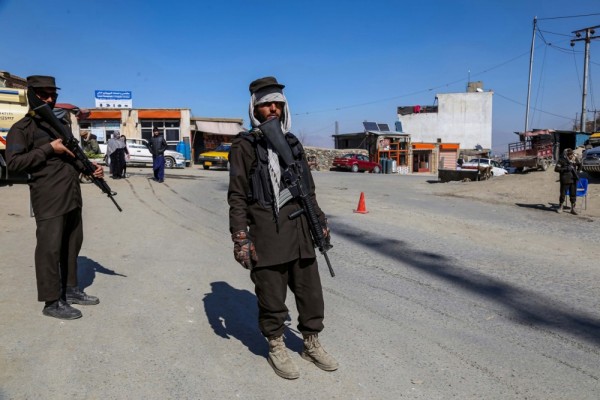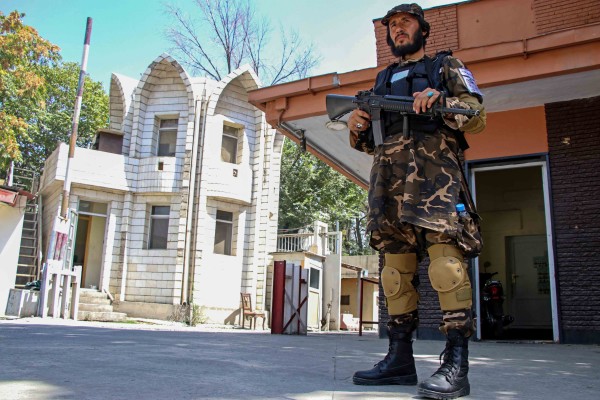H.E. Hamid Karzai
Chairman of the Executive Council
Interim Government of Afghanistan
Kabul
Afghanistan
Vienna, 14 March 2002
Your Excellency,
The International Press Institute (IPI), the global network of editors, leading journalists and media executives, is deeply concerned at a draft media law currently being circulated among those involved in rebuilding Afghanistan.
According to information provided to IPI, the text being circulated is an amended draft of a report from the Ministry of Information and Culture (“the Ministry”), dated February 2002. The proposed legislation is entitled, The Law of the Press (“the draft law”).
An examination of the draft law reveals a number of serious flaws which if enacted, would have a deleterious impact on the free flow of information and the freedom of the media to practise its profession. Although the following is not an exhaustive list of the flaws in the draft law, IPI believes they are sufficient to show that a radical re-assessment is needed before legislators in Afghanistan decide to regulate the media.
With regard to the printed media, the draft law creates a complicated registration and licensing system for the press and periodicals. In the belief of IPI, this system is open to serious abuse and amounts to a licensing of individual journalists. After setting out the registration system, the draft law states that any offences not provided for within the law in question shall be subject to Sharia law. Because of this, IPI is extremely fearful that journalists will find themselves exposed to disproportionate penalties.
In article 3 of the draft law the media are separated out into a series of categories. One of the categories defines the “private media” as outlets belonging to a self-financed “individual who has received permission… ” IPI views the provision as a blatant breach of the internationally accepted principle that the media do not need permission to practice their profession. In addition, there would appear to be no provision that allows legal entities such as companies to enjoy private ownership.
Another serious problem concerns printing in the country. According to articles 4 and 11 only citizens of Afghanistan may print publications. Although this is similar to the approach in a number of other democratic countries, there is a generally held consensus that partial foreign investment should be allowed. IPI takes the view that foreign investment is vital to the success of the Afghani media and believes it would give the local media the strength to withstand possible government pressure during the transition period and beyond.
Regarding media owners, the draft law states that permission is needed from the Ministry. While this is a flagrant breach of the media’s autonomy and is thoroughly objectionable, the draft law fails to state the criteria for granting or withholding such permission. Furthermore, the appeals procedure following the original decision of the Ministry is also deeply flawed. This is because the appeal panel includes an individual from the Ministry. As a result, the Ministry will have a second opportunity to influence the decision-making process and will in effect be sitting in judgement of itself.
In article 24, the draft law states that unspecified amounts must be placed on deposit by the “Concessionaire” as a guarantee against future fines. Such a system is open to considerable abuse and would serve as a financial barrier, thus halting the development of the media in Afghanistan. Elsewhere, article 37 provides for an unacceptable warning system leading to the suspension or cancellation of a publication’s “concession”. In the opinion of IPI, this will have a chilling effect on the media and will once again inhibit the growth of the media in the country.
Another deeply worrying provision concerns the censorship of foreign media. According to article 40, the distribution of foreign publications is subject to prior permission from the Ministry. Once again this is a repressive measure which will imperil the free flow of information in Afghanistan.
Taking into account the above, IPI strongly believes that the draft law needs to be thoroughly amended. In fact, IPI takes the view that it would be better to discontinue the current process and to start afresh, this time taking into view the opinions of various organisations, including press freedom organisations. What is needed is a basic guarantee of freedom of the press and freedom of expression in the constitution. A guarantee that conforms to article 19 of the United Nations Universal Declaration of Human Rights. Unfortunately, the current draft law falls far short of this standard and, instead, provides a tool for suppressing the media which might be used in the future.
Therefore, we invite you to use your good offices to ensure that the draft law is not enacted in its present form.
We thank you for your attention.
Best regards,
Johann P. Fritz
Director
c.c.
H.E. Raheen Makhdoom
Minister of Information and Culture
Interim Government of Afghanistan
Ms. Mary Robinson
UN High Commissioner for Human Rights
United Nations
Geneva
H.E. Dr. Benita Ferrero-Waldner
Minister of Foreign Affairs
Federal Ministry of Foreign Affairs
Austria
H.E. Joschka Fischer
Minister of Foreign Affairs
Ministry of Foreign Affairs
Germany
Mr. Abid Hussein
Special Rapporteur on the Promotion and
Protection of the Right to Freedom of Opinion and Expression
United Nations
Geneva
Mr. Javier Solana
Secretary General/
High Representative for the Common Foreign and
Security Policy of the European Union
Council of the European Union
Brussels
H.E. Ambassador Lakhdar Brahimi
Special Representative of the Secretary-General for Afghanistan
c/o Office of the Spokesman for the Secretary-General
United Nations
New York, NY


